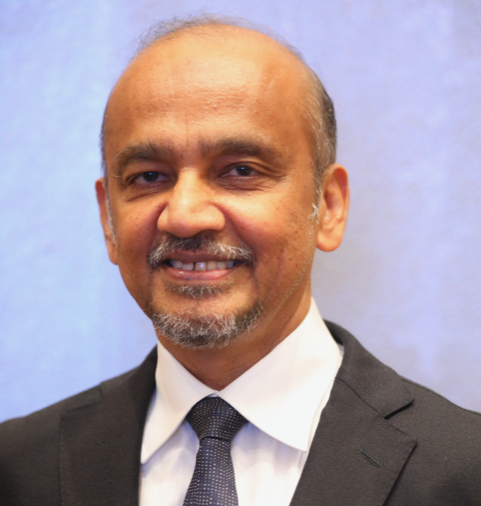KUALA LUMPUR, Sept 29 – A medical expert has called for a review of Malaysia’s vaccination policy for Hajj and Umrah pilgrims to prevent pneumococcal disease.
Currently, Hajj travellers from Malaysia are required to take the meningococcal quadrivalent (ACYW-135) and Covid-19 vaccines(11), while the Ministry of Health (MOH) encourages Muslim pilgrims to take other recommended vaccines, including the influenza and pneumococcal vaccine.(1,11)
“Pneumococcal vaccine helps protect against serious and potentially fatal pneumococcal infections.(17) This allows us to proceed with our normal activities,” infectious disease specialist Dr Christopher Lee told CodeBlue.
“This would be a good time to review the vaccine policy for our pilgrims. Besides the mandatory meningococcal and Covid-19 vaccines imposed by Saudi Arabia, this would be timely to review our local policy by adding both the influenza and pneumococcal vaccinations for our pilgrims.”(1,11)
“This should especially focus on the vulnerable, especially those with medical comorbidities like asthma, diabetes and heart problems.”(12)
Most Hajj and Umrah pilgrims go to Mecca at a late stage of their lives, or when they are frail and can easily be infected by pneumococcal pneumonia.(2,12,13)
A large fraction of Hajj pilgrims are elderly people aged above 65 and suffer from two or more comorbidities like diabetes, heart problems, and lung problems.(12)
Hajj And Umrah Pilgrims Suffer From Prolonged Pneumonia If Not Treated Well

Hajj and Umrah pilgrims can suffer from prolonged hospitalisation if they are infected with pneumonia especially if they have other diseases like chronic heart problem and diabetes.(5)
Besides that, they can also carry resistant organisms of the disease that prevent response to common treatment, said Prof Dr Abdul Razak Mutttalif, senior consultant chest physician and professor (Head of Medicine) at Malaysian Allied Health Sciences Academy (MAHSA) University.(4)
An observational study conducted by a group of scientists in Australia in 2017 found a 14.2 per cent pneumococcal carriage rate in pilgrims during the Hajj 2014. Around 40 per cent of the pilgrims were vaccinated against pneumococcal pneumonia, the likelihood of potentially pathogenic bacteria carriage rate was similar among vaccinated and unvaccinated pilgrims.(4)
Dr Abdul Razak, who concurred with this, said: “Studies have shown that the pilgrims can get resistant organisms from other pilgrims(4) and treatment may not be adequate while at the Holy Land and the pilgrims may bring it to Malaysia as a partially treated pneumonia.”
“Pneumococcal vaccine should be given to all pilgrims to prevent carriage and infection.”(3,13)
“Pneumococcal pneumonia is one of the leading causes of hospitalisation among Hajj pilgrims in Saudi Arabia.(5) There may be a risk of infecting the family members back home,” Dr Abdul Razak told CodeBlue.
Respiratory tract infection, including pneumococcal pneumonia, during the Hajj continues to be a burden to pilgrims. Most of the medical issues, or 74 per cent of cases reported during Hajj season, are respiratory problems.(6)
Dr Abdul Razak noted that ineffective treatment of pneumococcal pneumonia among Hajj and Umrah pilgrims in Saudi Arabia may result in transmission of the disease to others at the same time.(4)
Dr Abul Razak shared his experience of treating pilgrims who returned from Hajj and Umrah with prolonged pneumococcal pneumonia infection.
“I have seen a number of patients who see me on return, with prolonged coughs, due to post-infective bronchitis.(7,18)
“This cough may last for weeks or even months.(7) The cough may be a stress for the pilgrim, his family and others near him. It may disturb others and may even give them fear of being infected by an organism brought back from the Holy Land.”
Although pneumococcal pneumonia is a treatable infection as the disease responds to the usual antibiotics, different infectious strains can be resistant to common treatment methods, Dr Abdul Razak added.(8)
“Most treatment is done at the Holy Land and the pilgrims should be treated as outpatients with minimal cost.”
However, I have treated patients with prolonged pneumonia seeking treatment in Malaysia once they are back in their homeland, he added.
“In Malaysia, the cost can be anywhere between RM30 to RM40. However, in-patient treatment can be expensive depending on the duration, severity of illness, or if the patient developed any complications.
“The patient may end up with pleural effusion, empyema or lung abscess,” he said, referring to low respiratory tract infections. “These treatment costs can range from RM30,000 to RM40,000.”
However, Dr Abdul Razak noted that this is just an estimated cost of treatment for prolonged pneumococcal pneumonia in private health care facilities and it may vary according to the condition of the patient(s).
At the same time, Dr Abdul Razak highlighted the emotional challenges of sick pilgrims in the holy land that can disturb their mental well-being.(9)
“During Hajj and Umrah, the pilgrims will be very sad and depressed as he or she cannot perform the religious rituals when unwell. There can also be fear of him or her giving the infection to his partner or companion or roommates.”
Dr Abdul Razak highlighted that this can cause panic attacks and anxiety among pilgrims, eventually disrupting their peace of mind when performing their prayers.
Thus, Dr Abdul Razak emphasised the importance of pneumococcal vaccination as a recommended vaccine among pilgrims(10) to not only protect themselves from disease, but also to ensure a smooth spiritual and emotional journey during the pilgrimage.
“As of now, pneumococcal vaccination is strongly advised to be taken and not mandatory by Saudi Arabia.”(1)
“However, my personal advice is, it should be taken as it will protect the pilgrims from being infected by this organism and ending up in bad pneumonia with complications.”
The article is brought to you by Pfizer Malaysia. The contents represent the opinions and experience of respective individuals and do not necessarily represent the views or recommendation of Pfizer.
PP-PRE-MYS-0365-05NOV2021
- Tabung Haji Immunisation Information. Last accessed on 29 September 2021.
- Hajj and Umrah Mass Gatherings and COVID-19 Infection. doi: 10.1007/s40475-020-00218-x
- Prevention of pneumococcal infections during mass gathering. doi: 10.1080/21645515.2015.1058456
- Surveillance of Australian Hajj pilgrims for carriage of potentially pathogenic bacteria: Data from two pilot studies. doi: 10.12998/wjcc.v5.i3.102.
- Respiratory tract infection during Hajj. doi:10.4103/1817-1737.49412.
- The prevalence and preventive measures of the respiratory illness among Malaysian pilgrims in the 2013 hajj season. doi: 10.1093/jtm/tav019
- Serological study of Bordetella Pertussis, Mycoplasma Pneumonia and Chlamydia Pneumonia in Iranian hajj pilgrims with prolonged cough illnesses: A follow-up study. doi: 10.1016/j.rmed.2017.10.009
- Management of Infections Due to Antibiotic-Resistant Streptococcus pneumoniae. Clinical Microbiology Reviews. Published in October 1998.
- Hajj and the Mental Health of Muslim Pilgrims: A review. Conference paper. Psychiatria Danubina. 2019. Volume 31, Suppl. 3. Page: 290-293.
- The Hajj 2019 Vaccine Requirements and Possible New Challenges. doi: 10.2991/jegh.k.190705.001
- Saudi Arabia to allow only ‘immunised’ pilgrims to Mecca, April 5, 2021 (Saudi Arabia to allow only ‘immunised’ pilgrims to Mecca | Religion News | Al Jazeera) Last accessed on 11 July 2021.
- Which individuals are at increased risk of pneumococcal disease and why? Impact of COPD, asthma, smoking, diabetes, and/or chronic heart disease on community-acquired pneumonia and invasive pneumococcal disease (nih.gov) doi: 10.1136/thoraxjnl-2015-206780
- Hajj vaccinations—facts, challenges, and hope. doi: 10.1016/j.ijid.2016.05.024
- Safety Information for Pneumococcal Vaccines | CDC . Last reviewed: September 9, 2020.
- Hajj and Umrah Health Requirements. The Embassy of the Kingdom of Saudi Arabia in Washington DC. Last accessed on, 15 November, 2021
- Tabung Haji Immunization information. Last accessed on 15 November 2021
- Pneumococcal vaccine overview. The National Health Service (NHS) of the United Kingdom. Last accessed on 15 November 2021
- Postinfectious cough: ACCP evidence-based clinical practice guidelines. Doi: 10.1378/chest.129.1_suppl.138S








